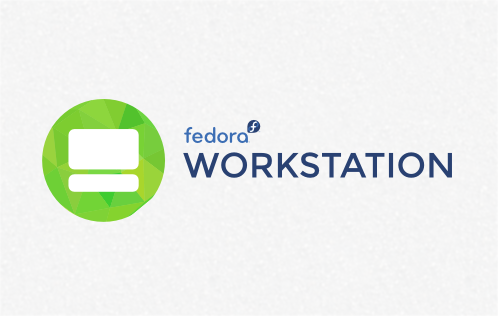“The desktop is not dying!” cries Christian Schaller as he dives into his talk on the Fedora Workstation. In a throwback to the old saw about the Year of Linux on the Desktop, he points out that 35% of laptop sales are Chromebooks and that there are now over six hundred games available on Steam for Linux.
So what is the Fedora Workstation trying to achieve? What are its driving principles? First of all, Fedora Workstation is the only desktop out there that isn’t trying to sell you (in other words, capture information about you to sell to someone else). Fedora Workstation will consider end-user privacy one of its highest goal. By default, Workstation will not share your data.
The recent switch to focusing on delivering specific Fedora Products gave the Workstation an opportunity to start defining standards and maintaining them within a particular Product. Traditionally, Fedora was effectively a collection of exactly what upstreams provided. With the Workstation, we’ll be able to curate this code and integrate it into a cohesive whole. One of the key points here is that by providing a known base, we give developers a better idea of what they can rely upon when writing their applications and services.
Christian continues on to discuss more about the future plans of the Workstation. The first of these was a discussion about how containers will fit into the Workstation world. Significant research is going into figuring out how to use container images to isolate and secure applications from one another, which will offer both flexibility and security in the long run. With some of the features offered by Wayland, this will eventually provide an excellent (and safe!) experience for users. Christian also notes that their goal is to make this all seamless from the users’ perspectives. If they notice it’s been done (without being told), they failed.
The Workstation Working group has been doing extensive research on Docker as a container implementation but has yet to make a decision on whether to standardize on Docker or else use a customized namespacing solution.
Christian then talks a bit about how Workstation is going to try to grow the platform. He acknowledges that there has been a slow decline of usage in Fedora and wants to put effort into drawing people back in. Some of the plans for this involve increased publicity through blogging and the Fedora Marketing groups. It will also involve finding ways to reduce the split between applications that run on Fedora and Red Hat Enterprise Linux. In part, that involves making sure that newer APIs are available in RHEL and older interfaces remain available in Fedora.
Another key piece of Fedora Workstation’s long-term strategy involves the creation and maintenance of a true ABI at all levels of the stack. This will help reduce the “moving target” aspect of Fedora and provide more guarantees about long-term sustainability of an application written for Fedora.
Christian takes a moment to talk about the target users. A lot of the conversation so far has been about making Fedora better for developers, but from his perspective it is also necessary to build a platform that’s useful to creators of all sorts. “Creators” may include video editors, 3D-modeling, music mixing and all sorts of other creation tasks.
After this, the conversation moved on to discuss a little bit of the challenges they face. Marketing and PR is going to be a significant challenge, particularly correcting some existing negative press that we’ve gathered over the last few years. We’ve also got to convince ourselves. There have been a lot of big changes in Fedora lately (the Three Product Plan being the most visible) and it’s clear that there’s going to be a period of adjustment as we course-correct and really figure out how we’re going to move forward.
Christian then talks about the advent of web-based applications and how that relates to the Workstation. He notes that there are users (even at Red Hat) that never open any local application other than their web browser. From this perspective, it’s very clear that we need Fedora Workstation to be a powerful mechanism for running web applications. So one of the things being worked on is ways that web applications can be tied into the desktop environment in a more integrated way.
Comments during and after the talk focused a great deal on the publicity and marketing aspects of things. It was noted that the more targeted user groups lends itself better to more controlled messaging. This will bring in more users in those particular groups who will in turn pass their good experience on by word-of-mouth.
Several questions were also asked about specific feature enhancements to things like Gnome Online Accounts (particularly around the earlier discussion of web applications). Christian indicated that the next immediate efforts on that front will likely be focused around a better calendaring experience.







Anon
Great news! Let’s hope Red Hat uses this opportunity to let us test, rather than pushing untested crap (hello sssd!) directly into RHEL.
Paul W. Frields
That comment doesn’t make sense to me. After all, sssd was in Fedora starting in Fedora 11.
archuser
Although i like gnome 3 sponsored by redhat i dont like fedora as it comes with too many apps also i dont like rpm format , i love everthing about archlinux install what you want philosophy , the pacman package manager
Luya Tshimbalanga
Glad that you appreciate Arch Linux as your distribution because it suits your preference. However, rpm format is a very excellent standard and easy to grasp thanks to the use of single spec file. Fedora being a community distribution and upstream for derivative like Red Hat Enterprise also take notes from other distribtuion in order to make it better.
techno
I’m a new Fedora user, who specifically came over from Arch and I have to say that while there is quite a bit to like, there are a few things I find myself longing for. The AUR and the ability to install software without having to go through a large number of individual repos is significantly better and while RPMFusion and fedy attempt to rectify this, comparatively it seems rather disjointed. I had a recent kernel update drop support for my wireless driver.
The other area that seems rather weak is documentation. While the IRC was phenomenal and resolved my wireless issue within a few minutes, I’ve found myself often having to ferret out solutions to issues by going to other distro forums and apply those my computer.
Overall I’m looking forward to a renewed emphasis on the community and hope to be able to start contributing in areas I’ve found lacking so that the community as a whole can be made better.
Darren LaChausse
First of all, Fedora Workstation is the only desktop out there that isn’t trying to sell you (in other words, capture information about you to sell to someone else). Fedora Workstation will consider end-user privacy one of its highest goal. By default, Workstation will not share your data.
I have been a long time user of Fedora (among other distributions), but this statement is very disingenuous. Although this is clearly a jab at Ubuntu, I don’t feel that this is in any way an accurate statement. Are Slackware, Debian, openSUSE, Mageia, Gentoo, Arch, or the countless other distributions trying to sell me? Unless you are trying to say that the only Linux desktop/workstation distributions are Ubuntu and Fedora, I think you should rephrase that statement.